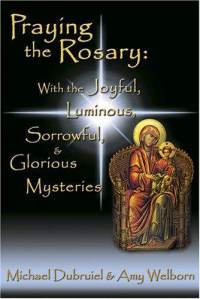Step # 5 of the 73
5. Not to steal...
It may seem strange that stealing is so high on St. Benedict’s list, but there is nothing more destructive in communal living than mistrust and there is nothing that can destroy trust like living with thievery. Once something no matter how insignificant is stolen everyone around becomes the potential thief.
There is a story I have heard so many times and so many versions of that I am not even sure where it is originally from but it goes something like this: An abbot of a monastery had become very disenchanted with the way the monks in his monastery treated one another. He ventured off to seek out the advice of an holy monk who lived as a hermit deep in the woods.
After the holy monk had listened to the abbot’s concern, he raised his hand and asked the abbot to wait while he prayed about this situation. Several hours passed and finally the hermit reappeared in the cell and made his solemn announcement to the abbot. “When you go back to the monastery tonight gather all of the monks into chapter and then announce to them what I have to tell you.” He then revealed what he had learned in prayer to the abbot.
That night the abbot did as the holy man had instructed, when the last of the monks had taken their place in the room, the abbot arose and announced to the gathered assembly, “The holy hermit has announced to me and asked me to inform you that God has revealed to him that the messiah is in our midst.” Afterwards the monks treated each other with great respect, wondering and not knowing if the monk they were dealing with might be the messiah.
The way we treat others and their property is largely based on how much we respect and hold them in awe. If we had a deep sense of love, respect and awe of each and every person we would never take anything from them. But too often we lack this basic sense of dignity that others deserve from us.
We reason that someone is wealthy and they won’t miss this or that item so we take it as though our attitude about someone else is reality. We reason that we have paid a just fee and that entitles us to more than what we know it does. All of our reasons are aimed at justifying something that we know is wrong and the very act of trying to rationalize our behavior makes us less not in God’s eyes but in our view of ourselves.
5. Not to steal...
It may seem strange that stealing is so high on St. Benedict’s list, but there is nothing more destructive in communal living than mistrust and there is nothing that can destroy trust like living with thievery. Once something no matter how insignificant is stolen everyone around becomes the potential thief.
There is a story I have heard so many times and so many versions of that I am not even sure where it is originally from but it goes something like this: An abbot of a monastery had become very disenchanted with the way the monks in his monastery treated one another. He ventured off to seek out the advice of an holy monk who lived as a hermit deep in the woods.
After the holy monk had listened to the abbot’s concern, he raised his hand and asked the abbot to wait while he prayed about this situation. Several hours passed and finally the hermit reappeared in the cell and made his solemn announcement to the abbot. “When you go back to the monastery tonight gather all of the monks into chapter and then announce to them what I have to tell you.” He then revealed what he had learned in prayer to the abbot.
That night the abbot did as the holy man had instructed, when the last of the monks had taken their place in the room, the abbot arose and announced to the gathered assembly, “The holy hermit has announced to me and asked me to inform you that God has revealed to him that the messiah is in our midst.” Afterwards the monks treated each other with great respect, wondering and not knowing if the monk they were dealing with might be the messiah.
The way we treat others and their property is largely based on how much we respect and hold them in awe. If we had a deep sense of love, respect and awe of each and every person we would never take anything from them. But too often we lack this basic sense of dignity that others deserve from us.
We reason that someone is wealthy and they won’t miss this or that item so we take it as though our attitude about someone else is reality. We reason that we have paid a just fee and that entitles us to more than what we know it does. All of our reasons are aimed at justifying something that we know is wrong and the very act of trying to rationalize our behavior makes us less not in God’s eyes but in our view of ourselves.
It is useful to remember that the men nailed next to Jesus on the cross are often referred to as thieves. The so-called good thief acknowledges that his sin has merited so horrible a death. There was something of the presence of Jesus that made him realize that. If we put ourselves into the presence of God we will come to the same conclusion that taking what does not belong to us is wrong.






